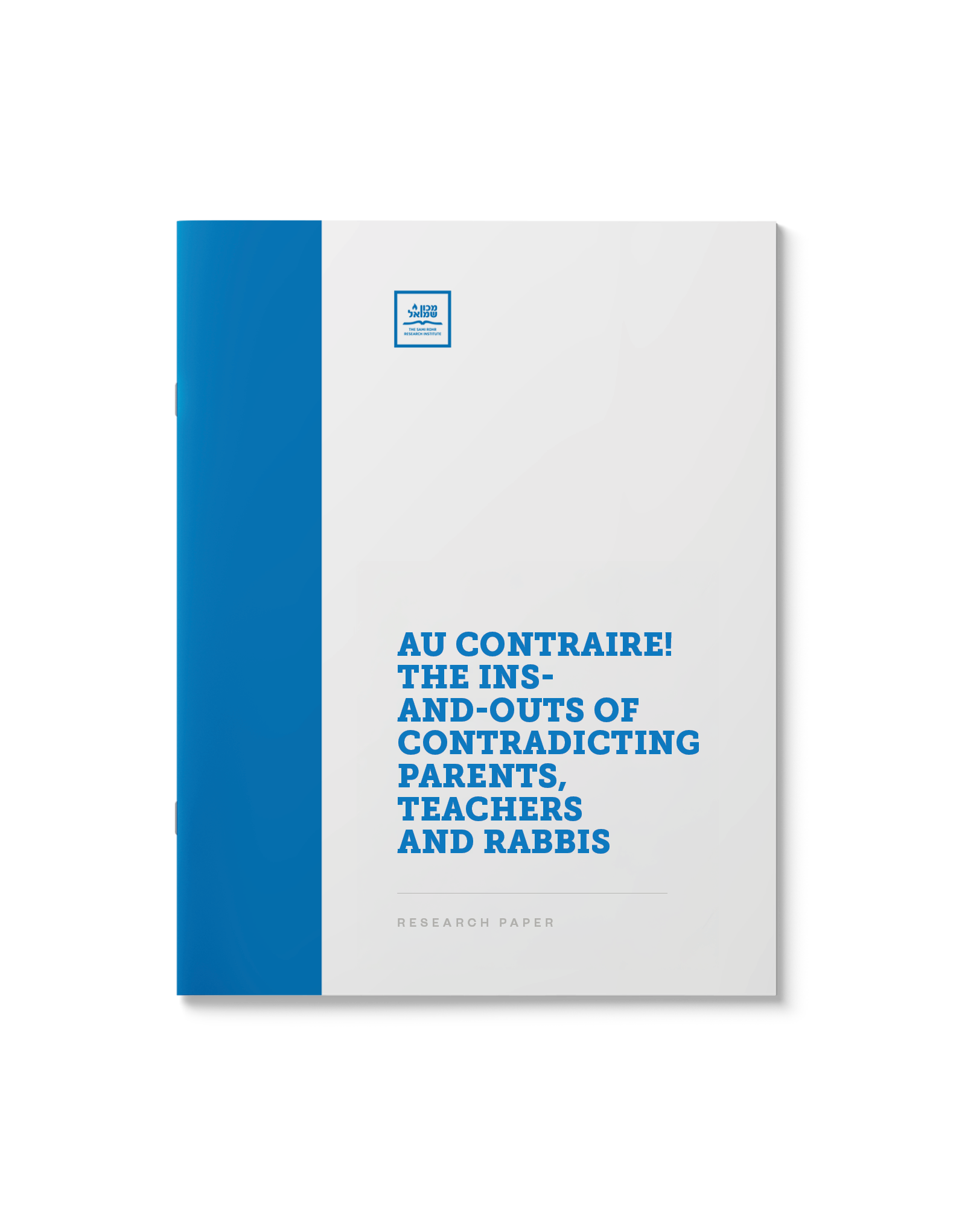Au contraire! The Ins-and-Outs of Contradicting Parents, Teachers and Rabbis
$39.00
Each individual is blessed with a unique vantage point through which to observe reality. But are there circumstances in which voicing those opinions is inappropriate accoriding to Torah law? What is the halachah about disagreeing with pre-eminent Torah sages?
| Language | English |
|---|---|
| Paper Type | Research Paper |
| Pages | 8 |
Related Products
Jewish ritual is rife with physical actions—such as standing, bowing, rising— which hint to the spiritual drama unfolding in the background. This paper takes a close look at several of these to gain an understanding of the complex interplay between man’s physical state and his spiritual state.
Does smoking violate our responsibility to protect our bodies? What about drinking alcohol? Do drugs fall into the same category? This paper examines the parameters of shmiras haguf and extracts the principles that inform halacha’s approach to the various ways of harming oneself.
As a complex, strategic game known to improve memory and cognitive abilities, the Jewish attitude to Chess is an intriguing one. Were Torah scholars in favor of this pastime? Are there halachic issues to be aware when playing this game?
In recent decades, thousands of Jews have gravitated to the East in pursuit of spiritual enlightenment. More recently, several Eastern Practices have been secularized, popularized, and repackaged as physical and meditative exercises. Does this make them kosher? Which practices are problematic and should be avoided? And what was the Rebbe’s response to the popularization of Yoga and Transcendental Meditation back in the ’70s?
(67 pages)
Submitted by a Shliach in New York
What is the purpose of dreams? Are their messages real? Is a dream about a Tzaddik to be considered fact or fantasy?
(Includes 88 pages of supplementary material)
עת לבכות ועת לשחוק. על סוגי בכיות השונות, מעלותיה והשפעתה על האדם, לאור השקפת הוגי מחשבת ישראל ומאורי החסידות.
Why do the Jewish people need leaders? Where is the line between guidance
and dictatorship? What qualifies one to be a leader? An analysis of one of
Judaism’s most central institutions.
Many natural substances have psychoactive (mind-altering) properties that can significantly impact one’s mental state and affect one’s mood.
May an observant Jew avail himself of such stimulants? Is such recreation acceptable from a halachic standpoint, or does it contravene one’s Torah obligations? How would we judge actions taken while under the influence of drugs and alcohol?
See also: “The Drugs Debate” on the appropriate legislative attitude towards controlling the proliferation of potentially harmful substances.
Table of Contents
A Yeshiva is the mainstay of the Jewish community. The Rebbe would often encourage people to support Yeshivos in a myriad of ways, be it by encouraging enrollment, assisting with financial support, and the like. This features a collection of the Rebbe’s talks on the importance of supporting Yeshivos.
Eretz Yisroel is distinguished as “The Land G-d, your G-d, watches over; The eyes of G-d, your G-d, are always upon it, from the beginning of the year to the end of the year” (Devarim 11:12).
Settling the land of Israel is regarded by some authorities as a personal imperative, while others point to its intense holiness as a reason for caution.
An assortment of articles and letters.
הדרת פנים זקן. סקירה כוללת ומקיפה על יסוד איסור השחתת הזקן, השיטות והטעמים בזה.
Joy is one of Judaism’s highest placed values. See why from a range of perspectives including halacha, mussar, and Chassidus. The Baal Shem Tov’s unique emphasis on simcha rounds out this broad discussion.















